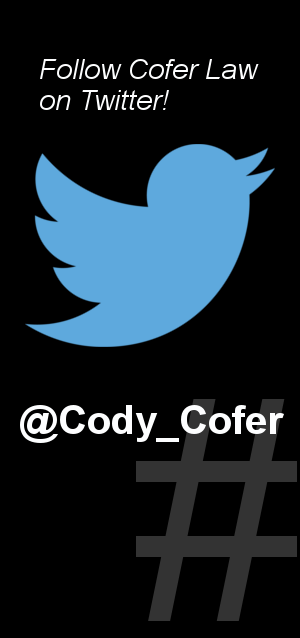Part 6: Conducting An Investigation Of The Case Attorney-Led Investigation And Hiring An Investigator Depending on the facts and nuances of your case, your attorney will advise you on the evidence that needs to be fleshed out, and whether or not you need to hire an investigator. Your attorney will simultaneously be pursuing documents and evidence produced and collected by the State, which must in turn be picked apart for authenticity and potential inaccuracies. Your attorney will review everything produced by the State and develop a plan to rebut or acknowledge the State’s evidence at trial. Using your previously developed witness list, your attorney will review the backgrounds of each individual, conduct interviews, and determine whether their testimony will benefit
Read more →What Does Prove Beyond A Reasonable Doubt Mean? Evidence in Texas Criminal Cases If a person is charged with a crime they are “presumed innocent” and can only be convicted when the prosecution proves the crime “beyond a reasonable doubt.” Even though a person has been accused, arrested, jailed, or charged with a crime – a jury is not supposed to assume a person has done something wrong. One jury member may need more evidence than another jury member to be convinced “beyond a reasonable doubt.” However, a lawyer cannot tell jury members that they should require more evidence to be convinced “beyond a reasonable doubt” based on how serious a case is. The United State’s Supreme Court has decided
Read more →Texas Criminal Legislative Update: May 6, 2015 Now that May is here, our Legislators are running out of time to move their bills through committee, pass them out of their Chamber, then repeat the process in the other Chamber. Thus, many bills will begin to fall by the wayside as the Legislators focus on their top priorities. We have put together some information on legislation we’re monitoring that still has a chance at becoming law. HB225 by Representative Guillen (which we previously reported on here) received a new wave of support following an impressive report that Texas has been dramatically and systematically under-counting prescription overdose deaths. The problem with the Department of State Health Services reporting methods is they focus
Read more →On Sunday the FBI and the Justice Department released a statement acknowledging all except two of their microscopic hair comparison unit examiners overstated forensic matches in ways that favored the prosecution. This information comes as the National Association of Criminal Defense Lawyers (NACDL) and the Innocence Project assist the FBI in conducting a sweeping post-conviction review of forensic evidence. This extensive review began in 2012 following a Washington Post report “that flawed forensic hair matches might have led to the convictions of hundreds of potentially innocent people since at least the 1970s, typically for murder, rape and other violent crimes nationwide.” So far, the NACDL and Innocence Project have reviewed 268 of roughly 2,500 cases in a 20-plus year period before 2000, in which the
Read more →Tarrant County Medical Examiner Dr. Nizam Peerwani Testifies at Murder Trial Media coverage has highlighted many of the witnesses that have testified in the Michele Williams murder trial in Tarrant County, Texas. One of those witnesses, Dr. Nizam Peerwani, testified about the autopsy performed in the case; however, he was not the medical examiner that actually conducted the autopsy. According to testimony, a mysterious “Dr. White” actually performed the procedure, but for an undisclosed reason Dr. Peerwani terminated Dr. White some time ago. Now the State is relying on the expertise of Dr. Peerwani to sponsor the autopsy findings – although he never actually viewed the body. Something perhaps of interest to trial voyeurs, the Tarrant County Auditor’s Office can
Read more →The unfortunate fact about the criminal law system is that human errors are oftentimes unavoidable and leave huge flaws within the system. Unclear testimonies, poor eye witness accounts, and a less-than-great attorney are all things that could land an innocent person behind bars. Last week’s story about Dallas local, Michael Phillips, is a great example of these flaws and really shows the importance of criminal defense. When the front page of the newspaper reads “Man Arrested on Murder Charges”, most people automatically jump to the conclusion that the man was in fact the murderer. As a defense attorney, it is my job and passion to look at it differently. The sensitive and lengthy nature of criminal cases makes it possible
Read more →In 2013, Annie Dookhan, a chemist in one of Boston’s crime labs, made headlines when she pleaded guilty to 27 accounts of misleading investigators, filing false reports and tampering with evidence. Investigations revealed that Dookhan forged the initials of evidence officers, tested numerous samples without properly signing them out, dry labbed samples (visually identified drugs as opposed to forensic testing), and logged five times the average number of tests per month. The Dookhan scandal forced her lab to close and freed hundreds of defendants who suffered a violation of their right to a fair trial. Now sentenced to 3-5 years, Dookhan is facing the consequences for her betrayal of public trust. Now it seems as though Bexar County may have
Read more →Before anyone takes “forensic evidence” to the bank, they should read this opinion from the Texas Court of Criminal Appeals: “Salvador committed ‘professional misconduct’ [by] using the evidence in one case to support the evidence in another case.” Ex Parte Leroy Edward Coty (Tex. Crim. App. 2014). The truth is, at the end of the day all of the science in the world is no match for the power of a lie. We constantly hear State’s attorneys complaining about the “CSI Effect,” because jurors expect the government to actually collect forensic evidence. Ex Parte Coty demonstrates the scarier reality that often once a jury hears there is “forensic evidence” connecting someone to a crime the book is closed and the
Read more →
